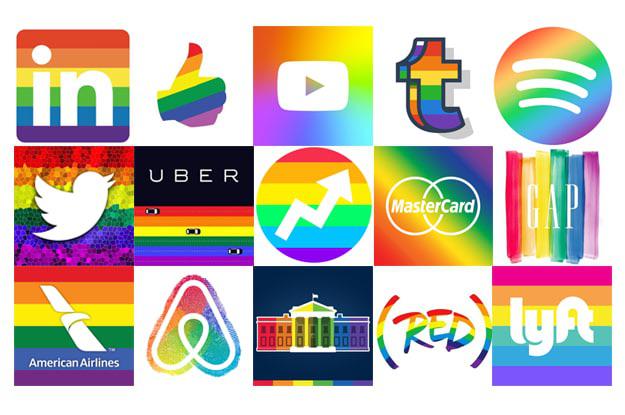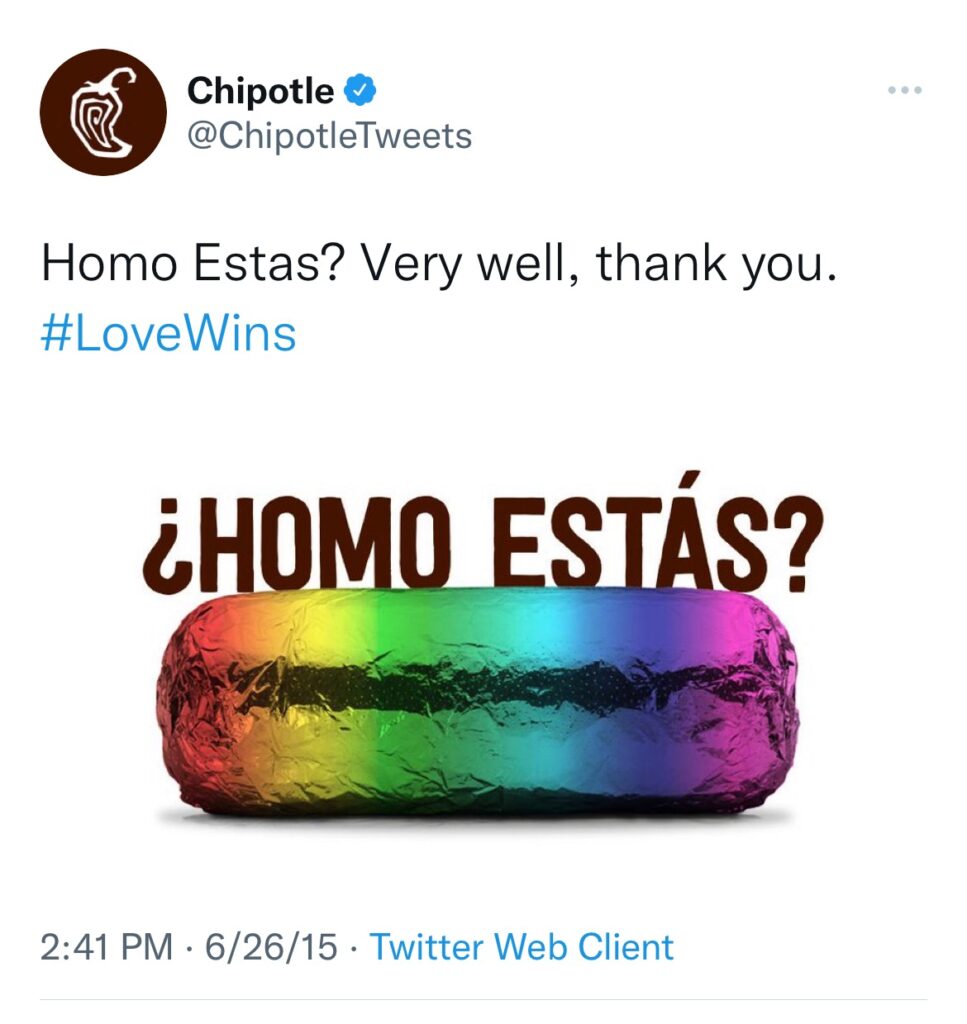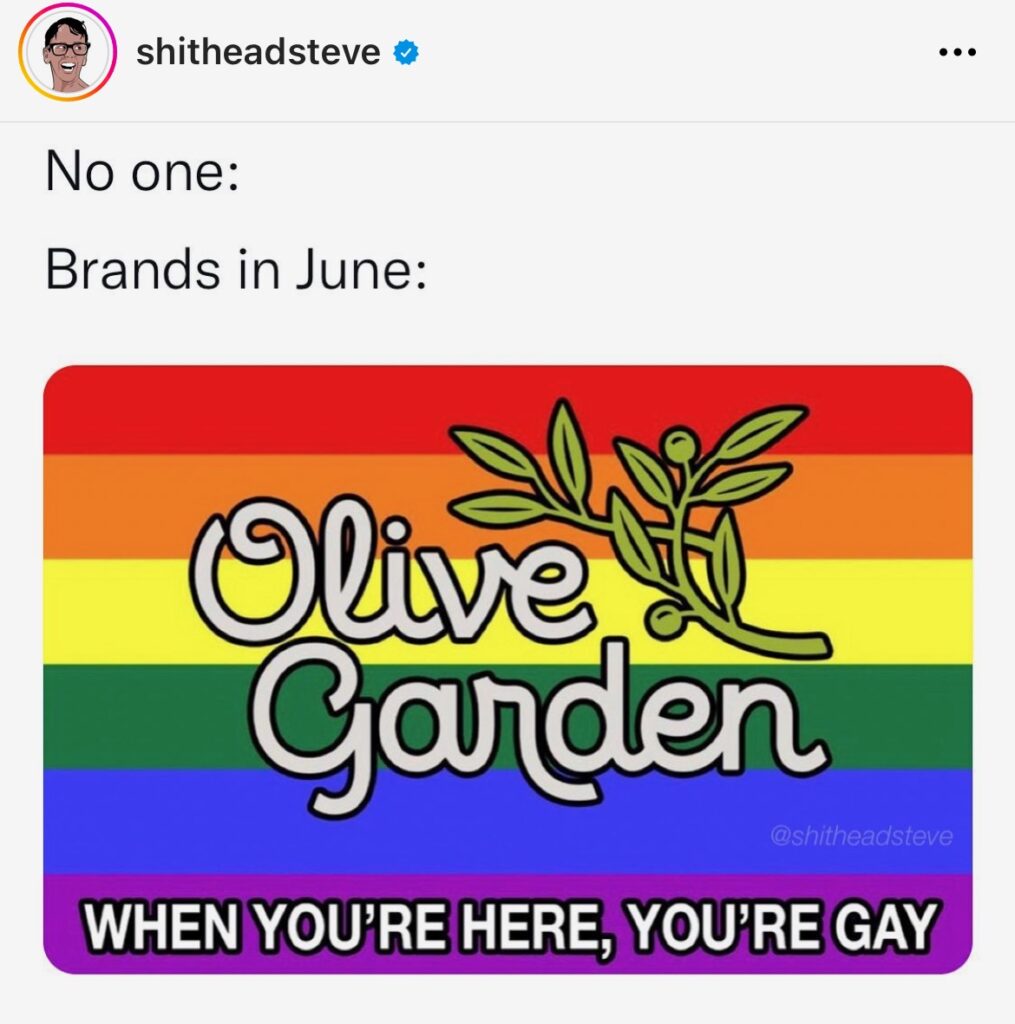I know you’ve seen this going on in June, but you might not have known what it was called. “Rainbow Washing” or “Pride Washing” is when a corporation turns its logo, for the month of June, from its traditional colors to rainbow colors to show its support of Pride Month.
Here are some examples:

Is there any harm in doing this?
My initial impression was “No”. I’ve got gay people in my life and for far too long most companies were scared to even acknowledge gay people were real, let alone show their support, so for me, this is an amazing time. We have billion-dollar corporations willing to come out publicly and state they support their gay employees and customers in a very public way.
But, we also have the bad marketing side of the world.
We have organizations that will Rainbow Wash their logo for June, to act like they are Prideful of their LGBTQ workforce and customers, but then do nothing else the rest of the year. Wait, how do you pronounce “Cinco De Mayo” or isn’t February the shortest of the months for Black History? I joke, this is classic in most organizations. We say we care, but we do the least amount to show we care.
The worst of this is when the organization says one thing, like, hey, look at our rainbow logo, but then goes and gives political donations to politicians who are actively working to reduce or eliminate gay rights. Yes, this is happening. This is far worse than those acting like they care but doing the minimum to increase sales. This is actively lying to employees and the public through behaviors and dollars working to support the other side.
Do you have to rainbow wash your logo to have Pride?
Nope. In fact, I’m sure the LGBTQ community would prefer you not wash your logo and just actually give a damn through your actions and funding of policies that support their community. But, doing those things and washing your logo is also awesome!
Signs and symbols of support shouldn’t be discounted. They are important. A corporation could be the biggest donor to gay rights but hide the fact they do it, that also isn’t great. “Pride” is about having pride for the LGBTQ community and showing your support in a public way that will show those who don’t support that you do and you’re not afraid to show it. Because for way too much of our history way too many were afraid to show their support.
Can Rainbow Washing go too far?

Well, maybe if it goes down the male genital route, you go too far!
This isn’t real, but it demonstrates how a brand can go over the edge with Pride!

Now, you might love the OG and be Gay, and I’m here for it! Everyone loves those breadsticks and salad!
Rainbow washing goes too far when you are doing it for promotion and marketing and not because you want to show Pride for the LGBTQ community. I know, for 100% fact, that some CMO and Revenue officers have had the discussion, “hey, what happens to our sales if we wash the logo? Oh, it’s up 7%! Should we keep it a rainbow for July!? No! That’s the American Flag washing logo, you idiot! Sales went up 8% last year with Red, White, and Blue!”
Rainbow wash your logo. Show support. Give to Gay Rights and Politicians who support Gay RIghts. Show your Pride!
